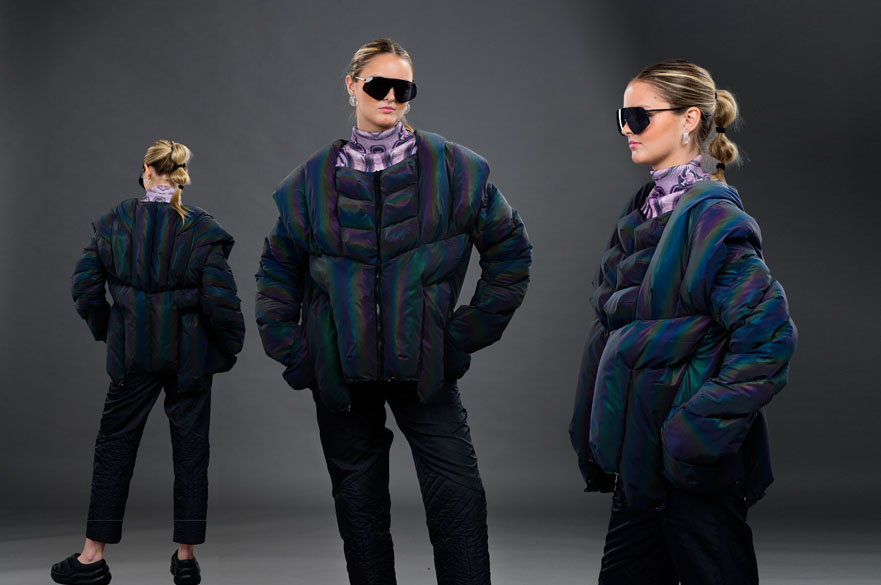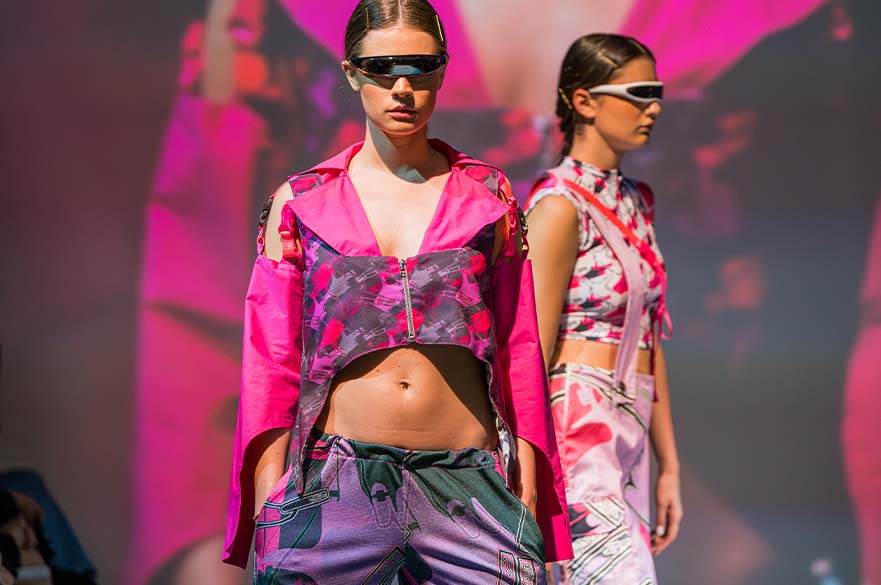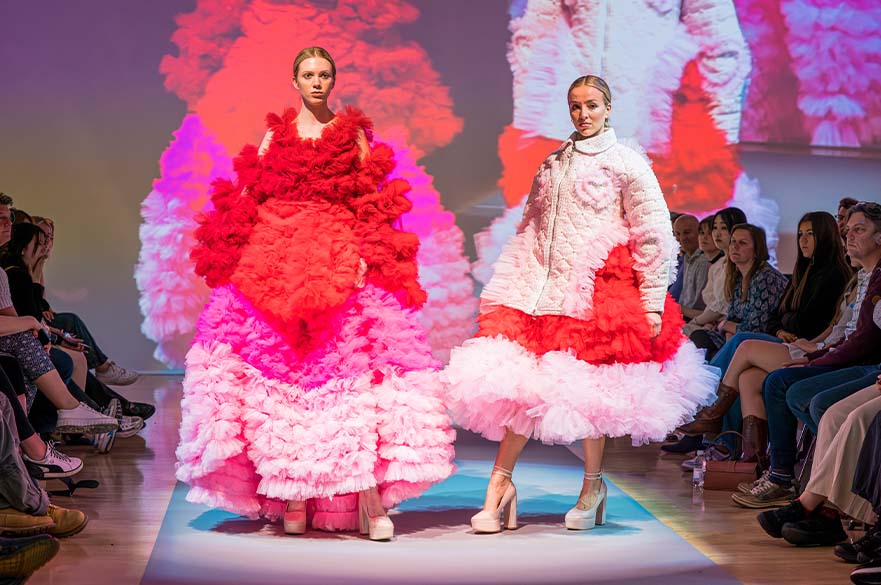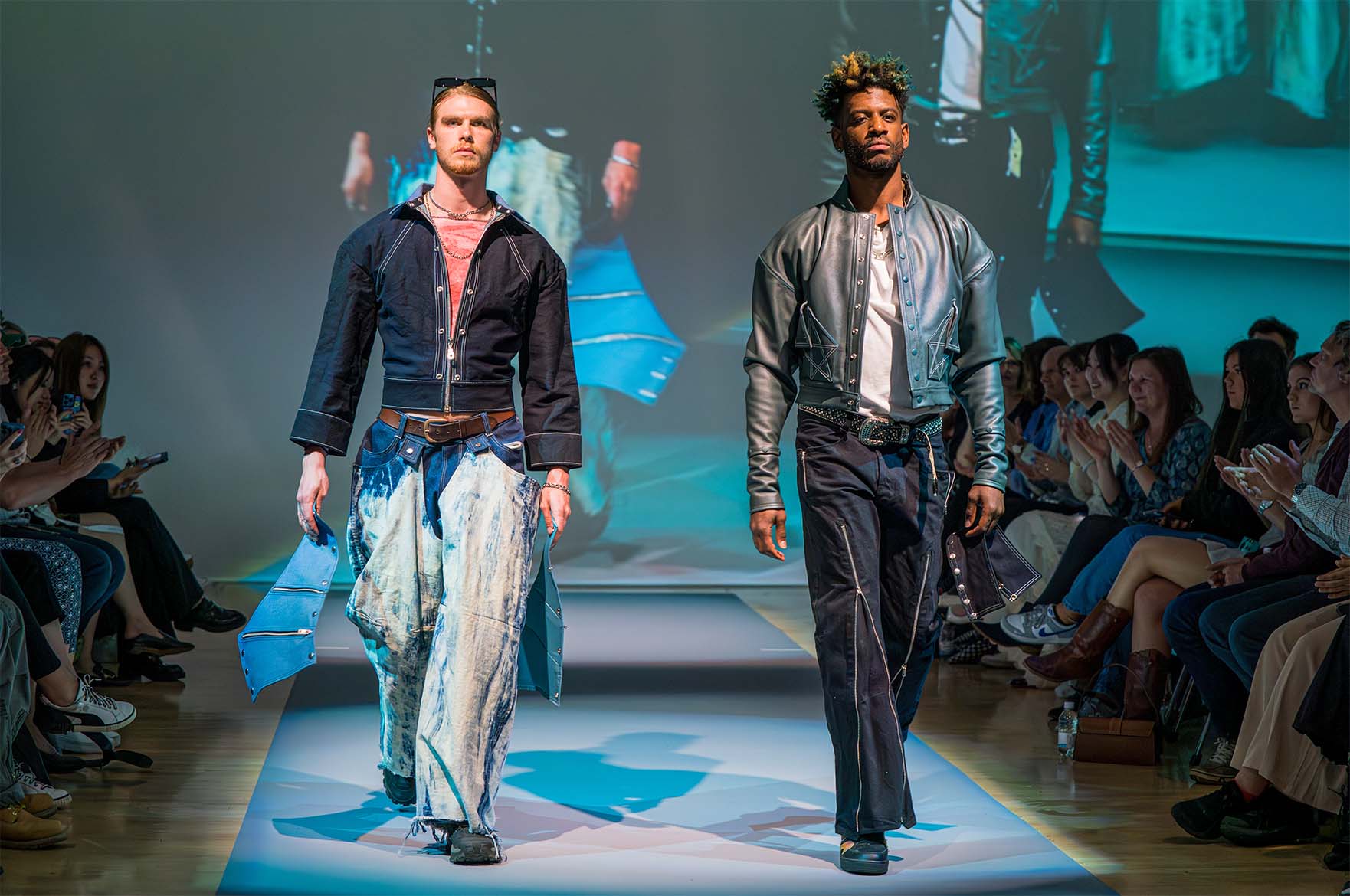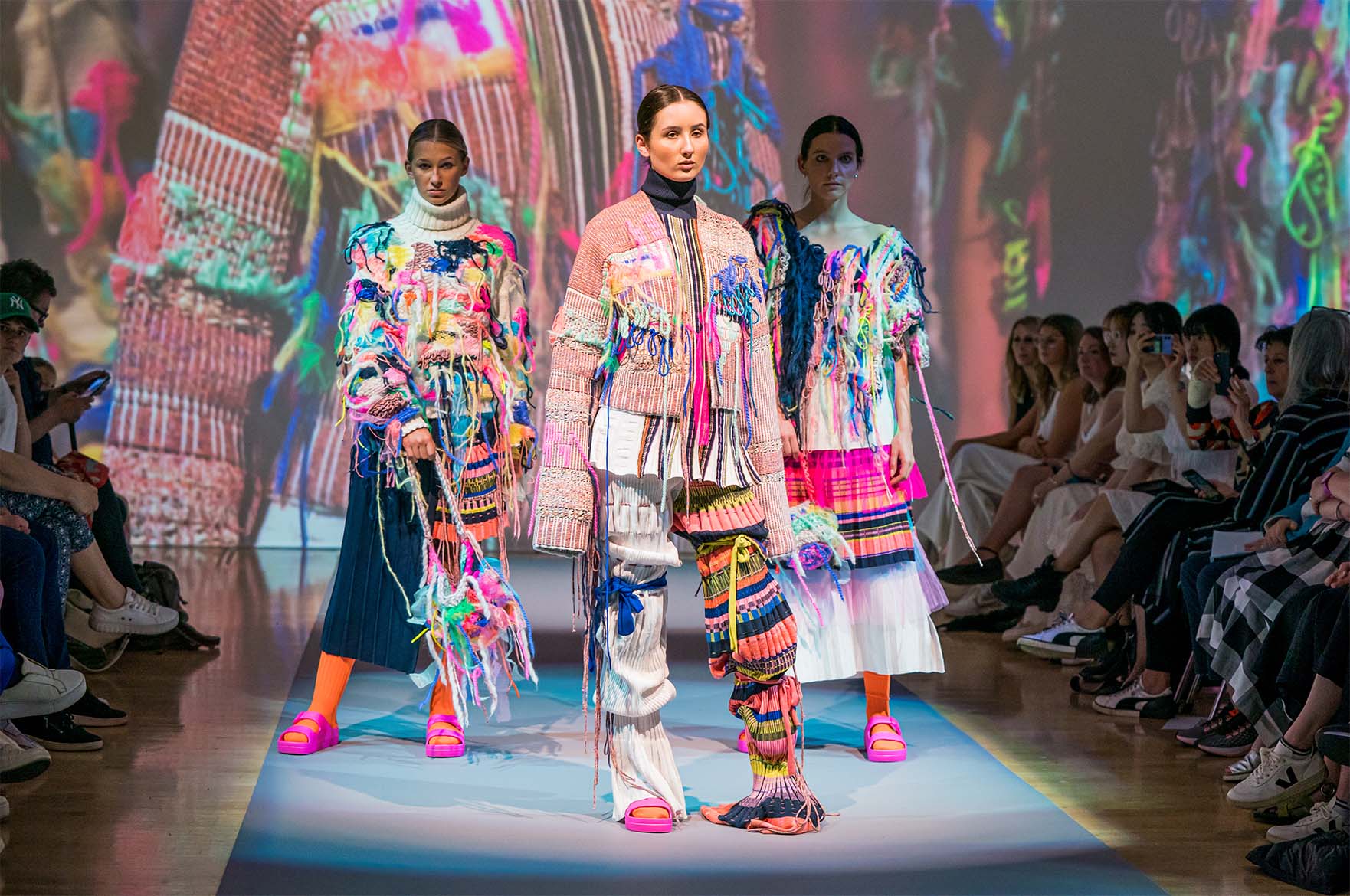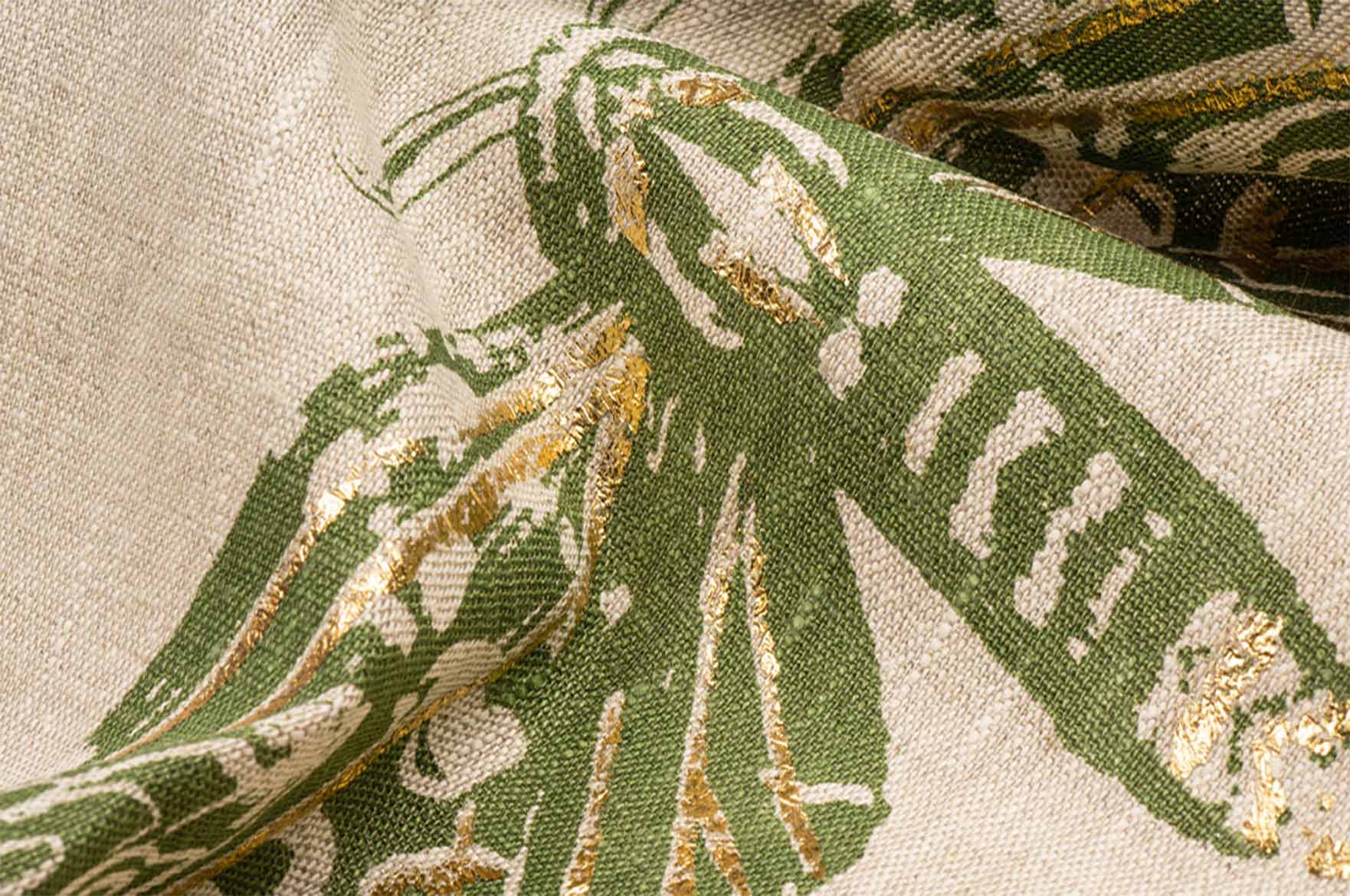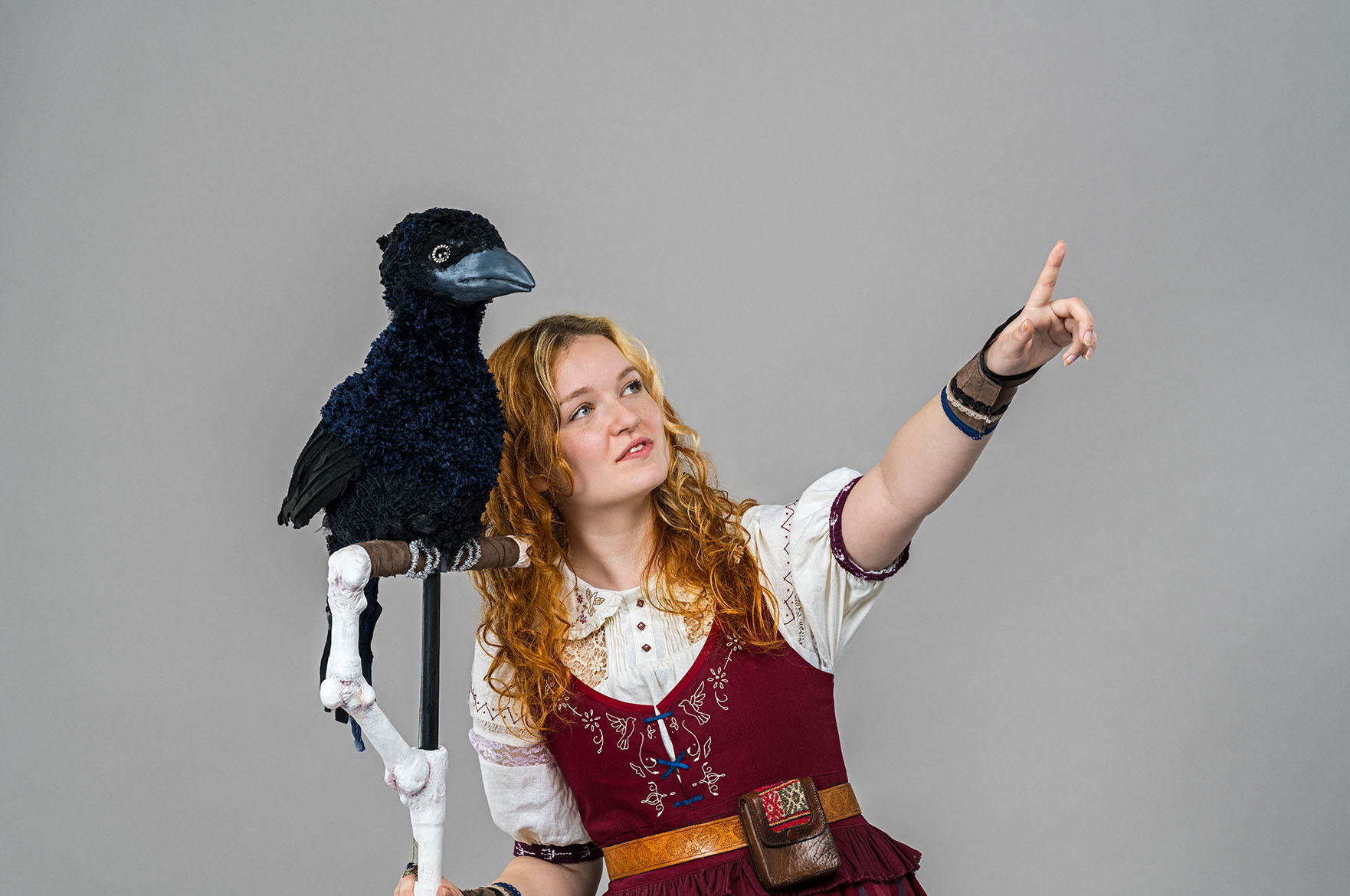About this course
Our BA (Hons) Fashion Design course has an established reputation, with exceptional national and international links within the fashion Industry, as well as a recognised global presence.
NTU fashion graduates are renowned within the industry for their creative, innovative and directional design skills, as well as a strong underlying awareness of commerciality, sustainability and technologies.
-
You’ll have the opportunity to complete a work experience placement of up to a year in length. Dependent on the duration of your placement, you could gain an additional Diploma or Certificate in Professional Practice.
-
Go on optional international study trips to events like Paris Fashion Week. You will also have the opportunity to apply for a European or international exchange to one of our partner institutions, including the Fashion Institute of Technology in New York, Hong Kong Polytechnic University, and more.
-
Benefit from guest lecturers such as Giles Deacon, Christopher Raeburn, and internationally renowned Japanese pattern cutting expert Shingo Sato.
-
Get involved with competitions and live projects with companies like Paul Smith, Sunspel, AllSaints, Universal Works, Priya Ahluwalia, Burberry, and Phoebe English. .
20
What you’ll study
This course offers you a challenging and dynamic opportunity to develop the relevant skills and knowledge required to springboard you into the global fashion and related industries.
Through personalised and collaborative project work, you will learn to integrate research, design ideas, technology and theory to develop directional and contemporary fashion design concepts.
The curriculum reflects current industry practice and includes in-depth broad-ranging visual research / concept development, material awareness, design development, creative pattern cutting, garment manufacture, prototyping / product development, fashion drawing / illustration, visual communication, sustainability and future thinking.
There is an opportunity for students to undertake a placement year, and transfer to the Sandwich route, please see further details in the ‘Year Three’ section below.
Fashion Fundamentals and Specialisms
(80 credit points, full year)
This module will introduce you to the fundamentals of fashion design through four key specialisms: Fashion Collection, Fashion Product, Fashion Technology, and Fashion Knitwear. In addition, you’ll be encouraged to explore other creative hubs in and outside of the school to personalise your experience and enhance your projects. The aim is to equip you with the essential knowledge and skills needed for the future of fashion while fostering your creativity and awareness of sustainability, inclusivity, and emerging technologies. You’ll gain a core understanding of each specialism through a series of lectures, tutorials, and hands-on workshops, and guided by your tutors, you will begin to uncover your strengths, interests, and career aspirations. This module will also prepare you for potential placement opportunities in your second year with the support of our NTU Employability team.
Design Fundamentals and Refection
(40 credit points, full year)
This module will introduce you to the fundamentals of design practice, including concept development, drawing techniques, colour theory, and material investigation. Additionally, you will use future thinking strategies to imagine new worlds and possibilities for design. The aim is to encourage further exploration of these fundamentals so you can personalise them in your work and lay the foundation for your growth as a responsible designer. This will help you see that the future is something you can shape, rather than something that just happens to you. Working in multidisciplinary teams with other students from across the Fashion, Textiles, and Knitwear (FTK) courses, you will build on this knowledge and test your essential employability skills. Regular reflection in seminars, tutorials, and workshops is also a key part of this module and will enable you to track your professional development.
Industry Practice and Menswear
(40 credit points)
This module will introduce you to the fundamentals of industry practice through a live menswear project. The brief will be set by an external industry partner, and you will work in collaborative teams to meet specific criteria. The aim is to equip you with the essential knowledge and skills needed for menswear design, including market and trends, while critiquing the current fashion system and its position on sustainability, masculinity, inclusivity, and ethics. Through a series of lectures, tutorials, and hands-on workshops you will build on strengths gained in Level 4, expanding the knowledge and skills of your chosen specialism: Fashion Collection; Fashion Product; Fashion Technology; or Fashion Knitwear, and refining other areas of creative interest. You will be exposed to industry processes, timelines, and standards and a high level of professionalism will be expected throughout. This experience is designed to prepare you for industry engagement at the end of the module and potential placement opportunities at the end of the year.
Co Lab: Research, Exploration and Risk-Taking
(20 credit points, second half of the year)
Co Lab offers an opportunity to practice professional behaviours, build supportive working relationships, take personal responsibility and develop your collaboration and reflection skills. The module is designed for you to take risks, experiment and embrace uncertainty in your creative process.
You will practice these skills in a project that is centred around engagement with one or more of the School pillars, these are:
Social justice
Sustainability and regeneration
Community (local or international)
Innovation and entrepreneurship)
The module asks you to reflect on your development of your professional working behaviours and how you have applied the knowledge and understanding of one or more of the pillars to your experimental creative process and decision making in your project.
Personal Exploration and Research
(40 credit points, first half of the year)
This module will help you consolidate your learning from previous modules while providing opportunities for further self-discovery and community building. At the beginning of the module, you will identify broader social, cultural, and/or environmental themes that align with your values. These themes will then serve as a springboard for ‘world-making’ and launch your personal project. The aim is to prepare you for your final year, by enhancing your confidence with academic sources and supporting you to push the boundaries of your creative experiments or prototypes. Emphasis will be placed on sustainable design strategies and the integration of both traditional and emerging technologies from Indigenous practice to ethical AI. Through a series of lectures, tutorials, and ‘new skills’ workshops, you will be encouraged to hone your chosen specialism: Fashion Collection; Fashion Product; Fashion Technology; or Fashion Knitwear, and expand its potential.
Optional module
(20 credit points, first half of the year)
Personalise your learning, selecting a module that develops your awareness of possible professional futures you may wish to engage with. Study with students from the creative community in the Nottingham School of Art & Design to expand your horizons, challenge ways of thinking and facilitate potential future collaborations. Choose from:
- Slow Making and Craftmanship
- Millinery : Object and Narrative
- Trend Forecasting
- Web3 & Creative Autonomy
- Drawing & Exploring with Natural Materials
- Fashion Styling
- Virtual Production
- Prop Making
Optional Placement Year (Sandwich)*
We have an option for all of our students to undertake a placement year (Sandwich) and allow you to decide whether this is right for you once you have completed years 1 and 2 of your course. This time spent working in industry provides our students with crucial work experience, which is highly prized and much sought after by employers upon graduation. If you are successful in securing a placement you will have the chance to gain an additional Certificate or Diploma in Professional Practice, dependent on duration.
The additional placement year incurs a fee. For international students considering the transfer to the 4-yr SW route it’s important to seek advice from the International Student Support team and the Home Office regarding any potential visa implications and costs. For UK students, advice should also be sought regarding SLC eligibility, if applicable.
* If you choose to take the sandwich route option, you will still need to apply for this course with the full-time UCAS code: W230
Creative Practice and Theory
(20 credit points)
This module supports you in completing an individual research project that builds on your critical and contextual understanding of contemporary world issues from Levels 4 and 5. Your project will be presented as an illustrated dissertation or in an alternative format, encompassing skills in research, analysis, and communication. The aim is to identify a relevant aspect of design and/or the wider cultural context and explore it in depth. You will develop viable research questions and conduct appropriate primary and secondary research to answer those questions. Analysis of academic texts, along with your own first-hand observations, will inform your critical thinking and contribute to your creative practice. The themes you explore might directly impact the outcome of your specialism or enhance your overall understanding of the broader context in which your career will develop.
This module will enable you to develop a deeper understanding of contemporary world issues. Building on your Level 5 proposal, you will refine your chosen topic and expand your research skills through seminars, tutorials, and independent study. A series of formative assessments will scaffold the development of your work, including presentations outlining the starting points of your research and planned structure, and a draft assignment, before the final submission. This blend of activities will enhance your knowledge of world issues, theories, and debates related to 20th and 21st-century design and/or culture relevant to your topic. You will also develop skills in primary and secondary research, analysis, organisation of information, written and visual communication, and peer and self-assessment.
Creative Practice and Intention
(40 credit points)
This module is designed to initiate your final year project and build on the knowledge and skills gained from previous modules at Levels 4 and 5, including Optional and Co-LAB. You can choose to work individually or collaboratively in physical and/or digital formats, but you must have a clear rationale for this project following your proposal presentation at Level 5. The aim is to expand the scope of your specialism: Fashion Collection; Fashion Product; Fashion Technology; or Fashion Knitwear, and other areas of creative interest through extensive prototyping and refining of technical processes via advanced research methodologies, design development, and design translation. This work should also connect to broader social, cultural, and environmental themes raised in your parallel Creative Practice and Theory module to underpin the purpose and potential impact of your project.
Creative Resolution and Futures
(40 credit points)
This module focuses on the resolution of your final year project and emphasises the importance of effectively communicating your work to intended audiences and industry networks. You will refine the prototypes and technical processes developed in your Creative Practice and Intention module and build on them to create a coherent outcome based on your specialism: Fashion Collection; Fashion Product; Fashion Technology; or Fashion Knitwear, and other areas of creative interest (including internal/external competitions). The aim is to support you in developing creative and impactful visual and/or digital content that resonates with diverse audiences and enhances the reach and influence of your project. In addition, you will evaluate your statement of intent from your previous module and reflect on how your project has evolved to meet your career aspirations. The module will close with a showcase of your final-year project utilising the appropriate platforms to promote your work.
We regularly review and update our course content based on student and employer feedback, ensuring that all of our courses remain current and relevant. This may result in changes to module content or module availability in future years.
Don’t just take our word for it, hear from our students themselves
Student Work
Video Gallery
How you're taught
On this course, you’ll spend most of your time in a creative studio environment.
Teaching and learning experiences will include:
- lectures
- staged briefings
- independent learning
- NOW online learning portal
- demonstrations
- studio workshops
- textile workshops
- tutorials
- seminars
- team working
- verbal and visual presentations
- supervision in workshops
- live projects
- study trips
- peer group activities.
Co Lab
Want real-world experience alongside your degree? Co Lab is your opportunity to work with peers from different disciplines on live projects set by industry partners. Embrace collaborative practice as you explore how creativity can make an impact in society and develop the skills employers want to see in the creative industries.
Trips and study visits
Experience new cultures and learn more about the international fashion industry through trips to events like Paris Fashion Week, whilst taking inspiration from different subject areas through UK trips to places like Yorkshire Sculpture Park.
Exchange opportunities
The Nottingham School of Art & Design has exchange agreements with a number of institutions around the world, such as the Fashion Institute of Technology in New York. You may choose to study abroad in Year Two for one semester.
Showcase
You will be given the opportunity to exhibit your work during your time at NTU to members of the creative industries. You may also be selected to showcase at Graduate Fashion Week in London – where many of our previous students have won awards. Visit our ‘We Are Creatives’ showcase to take a look at the work of this year's graduating students’.
How you're assessed
Assessment is predominantly through coursework. You will receive feedback throughout each module and will be awarded a grade. Depending on the module, you may be assessed through 2D visual research and design development work; 3D development work and final product; portfolio work; evaluations; reports; essays; and a dissertation.
Careers and employability
Our graduates go into a range of fashion-related roles across the world such as designers, product developers and buyers. Recent graduate destinations include:
- ASOS
- Abercrombie & Fitch
- Burberry
- Coach
- George
- H&M
- Mulberry
- Next
- River Island
- Roksanda
- Tom Ford
- Victoria Beckham
- Vivienne Westwood
- Yohji Yamamoto.
Our students have also had success at: The Young Ideas 50 Years in Fashion Illustration Competition, the Young Creators to the World contest at Lima Fashion Week in Peru and the Hong Kong Young Fashion Designers’ Contest (YDC).
Work placements and internship opportunities
You’ll have the opportunity to complete work experience or longer placement, with the chance to gain an additional Diploma or Certificate in Professional Practice, dependent on duration. Course tutors and our Employability team are on hand to support you in applying for placement and professional practice opportunities.
With the fashion department's excellent links with industry, students have secured paid summer internships at brands such as GAP inc. in New York and Urban Outfitters in Philadelphia.
Other recent placement destinations include:
- ASOS
- Christopher Raeburn
- GAP Inc.
- Jigsaw
- Old Navy
- Paul Smith
- River island
- Victoria Beckham
- Vivienne Westwood
YouFirst – working with our Employability Team
Studying a creative degree in a large university has many benefits, none more so than having access to a large employability team.
Our friendly, experienced careers consultants will work closely with you at every stage of your career planning, providing personal support and advice you won't find in a book or on the internet. You can benefit from this at any time during your studies and up to three years after completing your course.
Connecting with industry
This course collaborates with industry at local, national and international levels. Live projects and competitions will give you the opportunity to have exposure to real-life design situations.
Our students have taken part and enjoyed success in a range of top industry projects, awards and competitions, including:
- a live project with Oasis inspired by The Nottingham Lace Collection, which saw our students’ design launched in stores and online
- winning the TU Menswear Scholarship Award, Tessuti Sports and Leisurewear Award, and Fashion Marketing Award at Graduate Fashion Week (GFW).
Creative Industries Federation
We are members of the Creative Industries Federation (CIF), which means students in the Nottingham School of Art & Design have the opportunity to sign up to free student membership. Creative Industries Federation are an organisation that represents, champions and supports the UK’s creative industries and membership grants students exclusive access to their selection of resources and events to help advance your career and connect with industry.
Hear from global leaders
Recent visiting speakers have included Creative Director of Graduate Fashion Week, Martyn Roberts, and renowned fashion journalist, Hilary Alexander OBE, who visited to give students a GFW Masterclass.
Former editor of British Vogue, Alexandra Shulman, also visited to talk to students about her 25-year career at the magazine.
What our students are doing now
Student who survived cancer creates clothing range to support others
A fashion undergraduate who survived cancer in her teens has designed a clothing range to support women who are going through the same experience.
Funding secured to develop AI toolkit for universities teaching Art and Design
Fashion collection made entirely from donated fabrics
Campus and facilities
Our Fashion Design studios are lively, highly creative environments based in the Bonington building, a dedicated art and design hub. You can view all of our Fashion facilities on the Nottingham school of Art & Design Facilities page.
Entry requirements
UK students
- Standard offer: 112 UCAS Tariff points from up to four qualifications
- Contextual offer: 104 UCAS Tariff points from up to four qualifications
Other requirements
To find out what qualifications have tariff points, please use our tariff calculator.
Additional requirements for UK students
There are no additional requirements for this course.
Contextual offers
If you don’t quite meet our entry requirements, we might be able to make you a lower offer based on a range of factors, including your background (such as where you live and the school or college you attended), your experiences and your individual circumstances (you may have been in care, for example). This is called a contextual offer, and we get data from UCAS to help make these decisions. We do this because we believe everyone with the potential to succeed at NTU should have the opportunity to do so, no matter what barriers you may face.
Meeting our entry requirements
Hundreds of qualifications in the UK have UCAS Tariff points attached to specific grades, including A-levels, BTECs, T Levels and many more. You can use your grades and points from up to four different qualifications to meet our criteria. Enter your predicted or achieved grades into our Tariff calculator to find out how many points your qualifications are worth.
Other qualifications and experience
NTU welcomes applications from students with non-standard qualifications and learning backgrounds, either for year one entry or for advanced standing beyond the start of a course into year 2 or beyond.
We consider study and/or credit achieved from a similar course at another institution (otherwise known as credit transfer), vocational and professional qualifications, and broader work or life experience.
Our Recognition of Prior Learning and Credit Transfer Policy outlines the process and options available for this route. If you wish to apply via Recognition of Prior Learning, please contact the central Admissions and Enquiries Team who will be able to support you through the process.
Getting in touch
If you need more help or information, get in touch through our enquiry form.
International students
- 112 UCAS Tariff points from up to four qualifications
We accept equivalent qualifications from all over the world. Please check your international entry requirements by country.
Other requirements
English language requirements: See our English language requirements page for requirements for your subject and information on alternative tests and Pre-sessional English.
Additional requirements for international students
If you need help achieving the academic entry requirements, we offer a Foundation preparation course for this degree. The course is offered through our partner Nottingham Trent International College (NTIC) based on our City campus.
English language requirements
View our English language requirements for all courses, including alternative English language tests and country qualifications accepted by the University.
If you need help achieving the language requirements, we offer a Pre-Sessional English for Academic Purposes course on our City campus which is an intensive preparation course for academic study at NTU.
Other qualifications and experience
If you have the right level of qualifications, you may be able to start your Bachelors degree at NTU in year 2 or year 3. This is called ‘advanced standing’ entry and is decided on a case-by case basis after our assessment of your qualifications and experience.
You can view our Recognition of Prior Learning and Credit Transfer Policy which outlines the process and options available, such as recognising experiential learning and credit transfer.
Sign up for emails
Sign up to receive regular emails from the International Office. You'll hear about our news, scholarships and any upcoming events in your country with our expert regional teams.
Getting in touch
If you need advice about studying at NTU as an international student or how to apply, our international webpages are a great place to start. If you have any questions about your study options, your international qualifications, experience, grades or other results, please get in touch through our enquiry form. Our international teams are highly experienced in answering queries from students all over the world.
Policies
We strive to make our admissions procedures as fair and clear as possible. To find out more about how we make offers, visit our admissions policies page.
